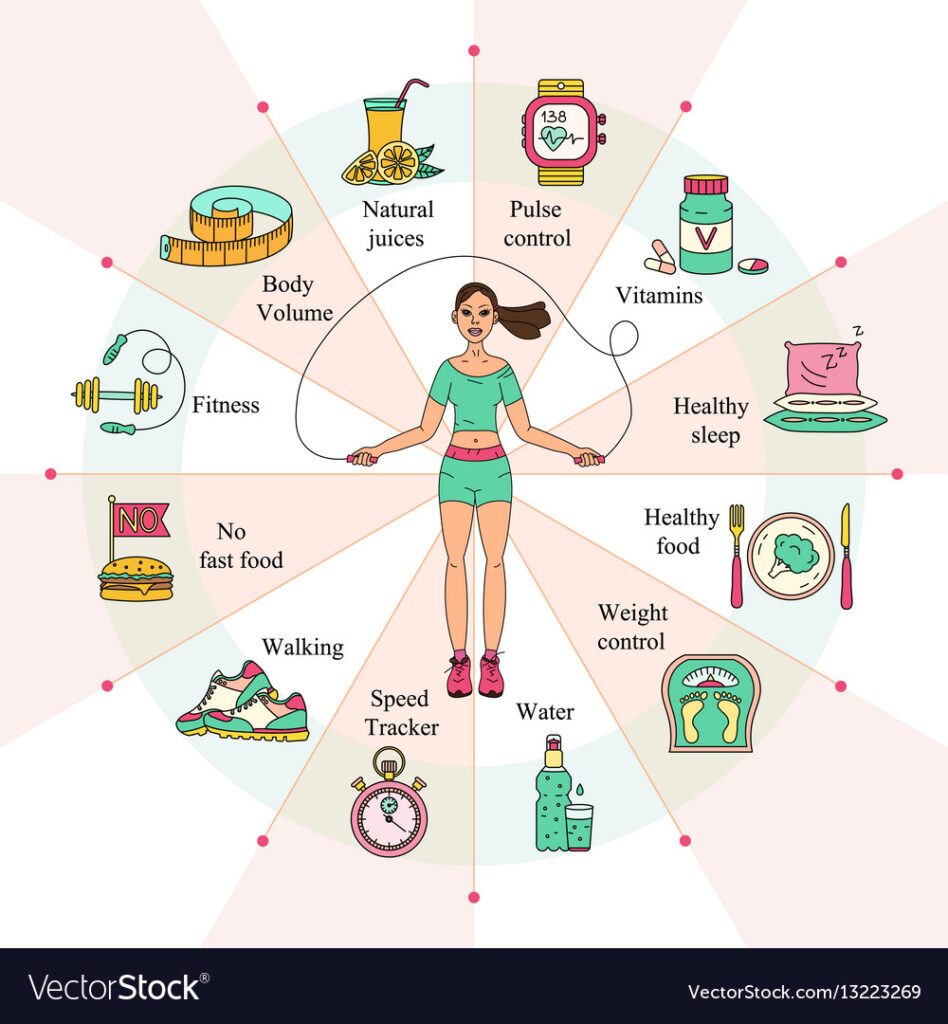The quickest way to lose weight is through a combination of a balanced diet and regular exercise. Focus on consuming fewer calories than you burn daily.
Achieving rapid weight loss requires commitment and strategic planning. Start by incorporating nutrient-rich foods into your diet. Prioritize lean proteins, whole grains, and plenty of fruits and vegetables. Regular exercise, such as cardiovascular workouts and strength training, boosts metabolism and burns calories.
Drinking plenty of water and getting adequate sleep also play crucial roles in weight management. Avoid fad diets and extreme calorie restriction; these can lead to nutritional deficiencies and health issues. Instead, aim for sustainable changes that promote overall well-being. Consulting a healthcare professional or a nutritionist can provide personalized guidance and support on your weight loss journey.

Credit: m.youtube.com
Understanding Weight Loss
Everyone wants to shed those extra pounds quickly. Understanding weight loss is key to achieving your goals. Knowing how the body burns fat and the factors that affect weight loss can help you lose weight effectively and safely.
How Weight Loss Works
Weight loss occurs when your body uses more calories than it consumes. This process is called a caloric deficit. When you eat fewer calories than your body needs, it starts burning stored fat for energy. Here’s a simple breakdown:
- Calories In: The calories you consume from food and drinks.
- Calories Out: The calories you burn through daily activities and exercise.
- Caloric Deficit: Burning more calories than you consume leads to weight loss.
To achieve this, you can either reduce your calorie intake or increase your physical activity. Combining both methods often yields the best results. Here are some practical ways to create a caloric deficit:
| Method | Description |
|---|---|
| Diet | Eat smaller portions, choose healthier foods, and avoid sugary drinks. |
| Exercise | Engage in activities like walking, running, or cycling to burn extra calories. |
| Lifestyle Changes | Take the stairs, stand more, and incorporate physical activities in your daily routine. |
Factors Affecting Weight Loss
Many factors influence how quickly you can lose weight. Understanding these can help you plan better:
- Metabolism: Your metabolic rate determines how fast your body burns calories. Some people have faster metabolisms.
- Age: Younger people often lose weight more easily due to higher activity levels and faster metabolism.
- Gender: Men usually have more muscle mass, which helps in burning more calories.
- Diet Quality: Eating nutrient-dense foods supports weight loss. Junk food can slow it down.
- Exercise Routine: Regular physical activity speeds up weight loss. Consistency is crucial.
- Sleep Patterns: Poor sleep affects hormones that control hunger and appetite. Aim for 7-8 hours of sleep.
- Stress Levels: High stress can lead to emotional eating and weight gain. Practice stress management techniques.
By keeping these factors in mind, you can tailor your weight loss plan to suit your needs. A balanced approach ensures steady and sustainable weight loss.
Setting Realistic Goals
When aiming for the quickest way to lose weight, setting realistic goals is crucial. Effective weight loss methods hinge on creating achievable milestones. These goals keep you motivated and ensure long-term success. Without them, you might feel overwhelmed and give up too soon. Let’s explore the importance of realistic goals and some goal-setting strategies.
Importance Of Realistic Goals
Setting realistic goals is fundamental to any weight loss journey. When you set achievable targets, you stay motivated and focused. Healthy weight loss strategies are about making sustainable changes, not quick fixes. Here’s why realistic goals matter:
- Boosts Motivation: Achieving small goals keeps you motivated. Each success fuels your desire to continue.
- Prevents Burnout: Unrealistic goals can lead to frustration and burnout. Realistic goals keep you on track.
- Promotes Healthy Habits: Setting achievable targets encourages you to adopt healthy habits. This includes weight loss exercises and weight loss diets.
- Ensures Long-Term Success: Weight management solutions that are realistic are more likely to be maintained long-term.
For example, losing 1-2 pounds per week is a healthy weight loss goal. This rate is sustainable and less likely to harm your body. Aiming for drastic weight loss quickly can be dangerous and unsustainable.
Goal Setting Strategies
To set realistic goals, use these strategies:
- Break It Down: Divide your ultimate goal into smaller, manageable steps. For example, if you want to lose 20 pounds, aim for 2 pounds per week.
- Be Specific: Clear goals are easier to achieve. Instead of saying “I want to lose weight,” say “I will lose 2 pounds this week by following my weight loss routine.”
- Track Progress: Keep a journal of your progress. Write down your weight loss foods, exercises, and feelings. This helps you stay accountable.
- Adjust As Needed: Be flexible. If a strategy isn’t working, tweak it. Maybe you need to try new weight loss techniques or adjust your weight loss motivation tactics.
Here’s a simple table to illustrate a goal-setting plan:
| Goal | Action | Timeline |
|---|---|---|
| Lose 2 pounds | Follow a balanced diet and exercise for 30 minutes daily | 1 week |
| Increase water intake | Drink 8 glasses of water daily | 1 week |
| Reduce sugar intake | Cut down on sugary snacks and drinks | 2 weeks |
Using these weight loss methods ensures you stay on track. Effective weight loss methods involve setting and achieving realistic goals. This approach makes your journey manageable and enjoyable.
Balanced Diet
Are you searching for the quickest way to lose weight? A balanced diet plays a crucial role in shedding those extra pounds. Effective weight loss methods often emphasize the importance of a well-rounded diet. This ensures you get all the essential nutrients while still cutting calories. Let’s dive into why a balanced diet is so important and explore some nutrient-rich foods to help you on your weight loss journey.
Importance Of Balanced Diet
A balanced diet is key to healthy weight loss. It ensures that your body gets the right amount of nutrients to function properly. Here are some reasons why a balanced diet is vital for weight management solutions:
- Nutrient Intake: A balanced diet provides essential vitamins and minerals, helping your body perform at its best.
- Energy Levels: Consuming the right mix of proteins, fats, and carbohydrates keeps your energy levels stable.
- Metabolism Boost: Certain foods can boost your metabolism, aiding in faster weight loss.
- Reduced Cravings: Balanced meals keep you full longer, reducing the temptation to snack on unhealthy foods.
Let’s look at a simple table explaining how different nutrients support weight loss:
| Nutrient | Function | Weight Loss Benefit |
|---|---|---|
| Protein | Builds and repairs tissues | Keeps you full longer |
| Carbohydrates | Provides energy | Maintains energy levels |
| Fats | Supports cell function | Helps absorb vitamins |
| Vitamins & Minerals | Regulates body processes | Enhances overall health |
Weight loss techniques that incorporate a balanced diet are more sustainable. You don’t just lose weight; you also improve your overall health.
Nutrient-rich Foods
Eating nutrient-rich foods is one of the best weight loss tips. These foods are packed with vitamins, minerals, and other essential nutrients, making them ideal for weight loss diets. Here are some examples:
- Leafy Greens: Spinach, kale, and Swiss chard are low in calories but high in fiber.
- Lean Proteins: Chicken breast, turkey, and tofu help build muscle and keep you full.
- Whole Grains: Brown rice, quinoa, and oats provide long-lasting energy.
- Fruits: Berries, apples, and oranges are rich in vitamins and antioxidants.
- Vegetables: Broccoli, carrots, and bell peppers are nutrient-dense and low in calories.
- Healthy Fats: Avocados, nuts, and olive oil support cell function and nutrient absorption.
Incorporating these foods into your weight loss routines can help you achieve your goals faster. Here’s a sample meal plan to get you started:
| Meal | Food |
|---|---|
| Breakfast | Oatmeal with berries and nuts |
| Lunch | Grilled chicken salad with spinach and quinoa |
| Dinner | Baked salmon with broccoli and brown rice |
| Snack | Apple slices with almond butter |
Following this meal plan ensures you get a variety of nutrients while sticking to healthy weight loss strategies. These weight loss foods are not only delicious but also highly effective in helping you lose weight. Remember, consistency is key to any weight loss program. Stay motivated and stick to your weight loss guide for the best results.
:max_bytes(150000):strip_icc()/losing-weight-with-ibs-1945012-01-987b235a57b240e4903560c79416288b.png)
Credit: www.verywellhealth.com
Effective Exercise Routine
Want to shed those extra pounds quickly? An effective exercise routine can be your best friend. Combining the right exercises with healthy weight loss strategies speeds up your journey to a fitter you. Let’s explore the types of exercises and how to create a workout plan for the quickest way to lose weight.
Types Of Exercises
Choosing the right weight loss exercises is crucial for effective weight loss methods. Here are some top types of exercises that help burn calories fast:
- Cardio Exercises: Running, cycling, and swimming are excellent for burning calories. These activities increase your heart rate and help you shed pounds quickly.
- Strength Training: Lifting weights and resistance exercises build muscle mass, which boosts your metabolism. A higher metabolism means more calories burned even at rest.
- High-Intensity Interval Training (HIIT): Short bursts of intense exercise followed by brief rest periods. HIIT workouts are highly effective for weight loss due to their high calorie-burning potential.
- Yoga and Pilates: These improve flexibility, strength, and mental well-being. They are great for those who prefer low-impact weight loss routines.
- Dance Workouts: Zumba, hip-hop, and other dance forms make exercising fun. They keep you motivated and burn a significant number of calories.
Here’s a quick comparison of some popular exercises and their calorie-burning potential:
| Exercise | Calories Burned (per hour) |
|---|---|
| Running | 600-800 |
| Cycling | 500-700 |
| HIIT | 600-900 |
| Weight Lifting | 300-500 |
| Zumba | 400-600 |
Creating A Workout Plan
To achieve healthy weight loss, you need a well-structured workout plan. Follow these steps to create an effective plan:
- Set Clear Goals: Define what you want to achieve. Whether it’s losing a certain amount of weight, building muscle, or improving stamina, clear goals keep you motivated.
- Mix Different Exercises: Combine cardio, strength training, and flexibility exercises. A varied routine ensures you work on different muscle groups and avoid monotony.
- Plan Your Weekly Schedule: Dedicate specific days for different types of workouts. For example:
- Monday: Cardio
- Tuesday: Strength Training
- Wednesday: Rest or Yoga
- Thursday: HIIT
- Friday: Cardio
- Saturday: Strength Training
- Sunday: Rest or Light Activity
- Start Slow and Progress Gradually: Begin with shorter sessions and lower intensity. Gradually increase the duration and intensity as your fitness improves.
- Track Your Progress: Keep a workout journal or use a fitness app. Monitoring your progress helps you stay on track and make necessary adjustments.
Remember, consistency is key to any successful weight loss program. Stick to your plan and pair it with a balanced diet of weight loss foods for the best results. Stay motivated, and you’ll see the pounds melt away!
Hydration And Its Impact
Staying hydrated is crucial for weight loss. Drinking enough water helps your body function better. It can boost your metabolism and help you feel full. This makes it easier to eat less. Let’s explore how hydration impacts your weight loss journey.
Benefits Of Hydration
Water plays a vital role in weight loss. Here are some benefits of staying hydrated:
- Boosts Metabolism: Drinking water can increase your metabolic rate. This means you burn calories faster.
- Reduces Appetite: Sometimes, thirst is mistaken for hunger. Drinking water can help you avoid overeating.
- Flushes Out Toxins: Water helps your body remove waste. This can improve your overall health and aid in weight loss.
Let’s look at how much water you should drink:
| Age Group | Recommended Water Intake |
|---|---|
| Children (4-8 years) | 5 cups/day |
| Teens (9-18 years) | 7-11 cups/day |
| Adults (19+ years) | 8-12 cups/day |
Drinking water is simple yet effective. It helps your body function at its best. Staying hydrated can make your weight loss journey smoother and more successful.
Hydration Tips
Here are some tips to help you stay hydrated:
- Carry a Water Bottle: Always have water with you. This makes it easy to drink throughout the day.
- Set Reminders: Use your phone to remind you to drink water. Set alarms every hour.
- Eat Water-Rich Foods: Foods like cucumbers, oranges, and watermelon have high water content. They help you stay hydrated and full.
- Drink Before Meals: Drink a glass of water before eating. This can help you eat less and feel full faster.
- Flavor Your Water: Add lemon, mint, or berries to your water. This makes it more enjoyable to drink.
Staying hydrated is easy with these tips. Make sure to drink enough water every day. This can help you lose weight faster and feel better overall.
Quality Sleep
Effective weight loss methods often overlook the importance of quality sleep. Yet, sleep plays a crucial role in healthy weight loss strategies. Ensuring you get enough restful sleep can boost your weight loss motivation and enhance the results of your weight loss programs. Let’s dive into why quality sleep is key for weight management solutions and how you can improve your sleep to achieve your weight loss goals.
Role Of Sleep In Weight Loss
Sleep is a significant factor in weight loss techniques. Getting enough sleep helps regulate hormones that control hunger. When you are sleep-deprived, your body produces more ghrelin, the hormone that makes you feel hungry. At the same time, it decreases the production of leptin, the hormone that makes you feel full. This imbalance can lead to overeating and weight gain.
Quality sleep also affects your metabolism. During deep sleep, your body repairs muscles and tissues and releases growth hormone. This process is vital for burning calories and keeping your metabolism functioning properly.
Additionally, poor sleep can lead to higher stress levels. Increased stress triggers the release of cortisol, a hormone that can cause your body to store fat, particularly around the abdomen. Therefore, getting adequate sleep is essential for effective weight loss methods.
To summarize the key points:
- Regulates hunger hormones
- Supports metabolism
- Reduces stress levels
Improving Sleep Quality
Improving sleep quality can greatly enhance weight loss routines. Here are some weight loss tips to help you sleep better:
1. Establish a regular sleep schedule:
Go to bed and wake up at the same time every day. This helps regulate your body’s internal clock and can improve the quality of your sleep.
2. Create a sleep-friendly environment:
Make sure your bedroom is cool, dark, and quiet. Consider using earplugs, an eye mask, or a white noise machine if needed.
3. Avoid stimulants:
Avoid caffeine and nicotine before bedtime. These substances can interfere with your ability to fall asleep and stay asleep.
4. Limit screen time:
Reduce exposure to screens at least an hour before bed. The blue light emitted by phones, tablets, and computers can disrupt your sleep-wake cycle.
5. Practice relaxation techniques:
Engage in activities like reading, meditation, or taking a warm bath before bed. These can help relax your mind and body, making it easier to fall asleep.
Here’s a table summarizing these tips:
| Tip | Description |
|---|---|
| Regular Sleep Schedule | Go to bed and wake up at the same time daily |
| Sleep-Friendly Environment | Keep the bedroom cool, dark, and quiet |
| Avoid Stimulants | No caffeine or nicotine before bed |
| Limit Screen Time | Avoid screens an hour before sleep |
| Relaxation Techniques | Read, meditate, or take a warm bath |
By following these weight loss hacks, you can improve your sleep quality and support your weight loss journey. Remember, quality sleep is a critical component of any weight loss guide and essential for achieving long-term success with weight loss methods.
Stress Management
Stress Management plays a crucial role in the quickest way to lose weight. Effective weight loss methods not only focus on diet and exercise but also on managing stress. When stress is managed well, it becomes easier to stick to healthy weight loss strategies and achieve your goals.
Effects Of Stress On Weight Loss
Stress can significantly impact your weight loss journey. High stress levels can lead to increased production of cortisol, a hormone that can cause weight gain, especially around the belly area. Here are some of the effects of stress on weight loss:
- Emotional Eating: Stress can trigger emotional eating, causing you to consume more calories.
- Metabolism Slowdown: Stress can slow down your metabolism, making it harder to burn calories.
- Poor Sleep: Stress can disrupt your sleep patterns, leading to weight gain.
- Increased Cravings: Stress can increase cravings for unhealthy foods, making it hard to stick to weight loss diets.
Let’s take a look at how stress affects weight loss in a more detailed manner:
| Stress Effect | Impact on Weight Loss |
|---|---|
| Emotional Eating | Increased calorie intake |
| Metabolism Slowdown | Harder to burn calories |
| Poor Sleep | Disrupted sleep patterns, leading to weight gain |
| Increased Cravings | Hard to stick to weight loss diets |
Stress-relief Techniques
Managing stress effectively is essential for healthy weight loss. Here are some stress-relief techniques that can help you stay on track with your weight management solutions:
- Meditation: Practicing meditation daily can help reduce stress levels and improve focus on weight loss routines.
- Exercise: Regular weight loss exercises not only burn calories but also release endorphins, which can reduce stress.
- Healthy Eating: Consuming weight loss foods rich in vitamins and minerals can help manage stress levels.
- Sleep: Ensuring you get adequate sleep can help manage stress and support weight loss programs.
- Hobbies: Engaging in hobbies you enjoy can be a great way to relieve stress and stay motivated.
By incorporating these techniques into your daily routine, you can manage stress effectively and enhance your weight loss motivation. Remember, stress management is a key component of any successful weight loss guide.

Credit: www.pinterest.com
Consistency And Persistence
Losing weight quickly is a goal for many, but achieving it requires more than just a quick fix. Consistency and persistence are key factors. They ensure you stick to your plan and make sustainable changes. Let’s dive into why these traits are crucial for weight loss.
Importance Of Consistency
Consistency is the backbone of any successful weight loss journey. Sticking to your plan daily helps build healthy habits. These habits are essential for long-term success. Here’s why consistency matters:
- Establishes Routine: Regular habits lead to sustainable weight loss.
- Builds Discipline: Daily adherence to your plan strengthens your resolve.
- Improves Metabolism: Consistent eating and exercise boost your metabolic rate.
Consider this table to understand the impact of consistency:
| Consistent Efforts | Inconsistent Efforts |
|---|---|
| Steady weight loss | Fluctuating weight |
| Improved mental health | Increased stress and frustration |
| Better fitness levels | Slow progress |
Consistency doesn’t mean perfection. It means making healthy choices most of the time. If you slip up, get back on track the next day. Small, consistent efforts add up over time. They lead to significant weight loss results.
Overcoming Setbacks
Setbacks are a part of any weight loss journey. Facing setbacks is normal, but overcoming them is crucial. Here are some tips to bounce back:
- Acknowledge the Setback: Accept that setbacks happen. Don’t be too hard on yourself.
- Analyze the Cause: Understand what led to the setback. Was it stress, lack of planning, or something else?
- Create a Plan: Develop a strategy to avoid similar setbacks in the future.
- Stay Positive: Focus on your progress, not the setback. Positive thinking helps you stay motivated.
Support systems are also vital. Share your journey with friends or join a support group. They can provide encouragement and keep you accountable. Remember, persistence is about continuing despite difficulties.
Tracking your progress helps. Use apps or journals to monitor your food intake and exercise. Seeing your progress can motivate you to push through tough times.
Setbacks are temporary. Persistence ensures you reach your goal. Stay committed, learn from mistakes, and celebrate small victories.
Frequently Asked Questions
What Is The Quickest Method To Lose Weight?
The quickest method to lose weight is a combination of a healthy diet and regular exercise. Focus on whole foods, reduce calorie intake, and stay active. Consult a healthcare professional for personalized advice.
Can I Lose 20 Pounds In A Month?
Losing 20 pounds in a month is challenging and often unhealthy. Aim for 1-2 pounds per week for safe weight loss. Consult a healthcare professional for personalized advice.
How Can I Lose 20 Pounds Asap?
To lose 20 pounds quickly, eat a balanced diet and exercise regularly. Drink plenty of water and avoid sugary foods. Prioritize sleep and manage stress. Consult a healthcare professional before starting any weight loss plan.
Can You Lose 10 Pounds In 3 Days?
Losing 10 pounds in 3 days is not safe or realistic. Rapid weight loss can harm your health. Focus on long-term, sustainable weight loss through diet and exercise. Consult a healthcare professional for personalized advice.
What Is The Quickest Way To Lose Weight?
Exercise regularly and maintain a balanced diet. Avoid junk food and sugary drinks.
How Can I Lose Weight Fast Naturally?
Eat whole foods, drink water, and get plenty of sleep. Avoid processed foods and sugary drinks.
What Exercises Help Lose Weight Quickly?
High-intensity interval training (HIIT), running, and swimming are effective for quick weight loss.
Conclusion
Losing weight quickly requires dedication and smart choices. Follow a balanced diet and exercise regularly. Stay hydrated and get enough sleep. Avoid unhealthy snacks and processed foods. Remember, consistency is key. Stay motivated and track your progress. With determination, you can achieve your weight loss goals swiftly and safely.






